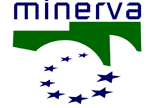
|
|
|
|
|
|
|
|
|
 |
Path: Home >> European and national rules on Web Applications >> Foreword
|
| |
Directory of European and national rules on Web Applications (updated version, 21 May 2008)
|
|
AboutStructureInteroperabilityQuality, accessibility, usabilityBest Practices |
|
|
|
|
Copyright Minerva Project 2008-05, last revision 2008-05-21,
edited by Minerva
Editorial Board. | |